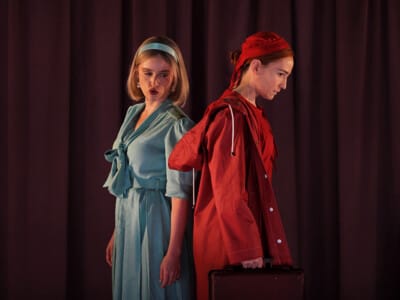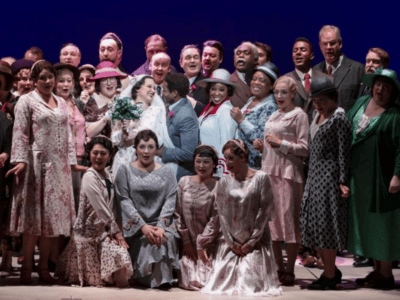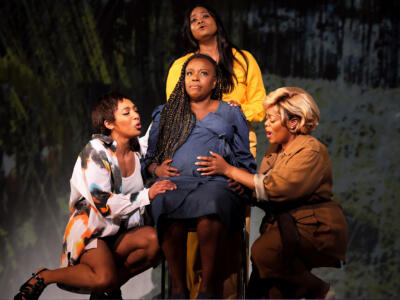Beginner's Guide to 20th Century Composers
The 20th century produced some of the most famous opera composers in history. Here are just a few of the most successful composers and their popular works which have helped secure their place in the history books.
Philip Glass
Video
Philip Glass (born January 31, 1937) is an American composer. He is considered one of the most influential composers of the late 20th century. This is largely due to his unique musical style which is often minimalist and repetitive. Read our guide to Philip Glass music to learn more about some of his most famous works.
Glass had a number of influences across the years which helped to shape his style of composing. He studied at the University of Chicago and the Juilliard School, where he worked as an assistant to Ravi Shankar. This led to an interest in Indian music. He was among the first western composers to incorporate Asian influences into his compositions, which have generally been in the classical style.
Video
Following his studies was an expansive career that included a number of operas, theatre collaborations, film scores and contemporary classical concert music. He has written numerous symphonies that include two with a full orchestra: Symphony No. 1 (1992) and Symphony No. 2 (1994). However, amongst some of Glass’s most famous works were his elaborate operas: Einstein on the Beach, Akhnaten, Satyagraha and Orphée to name but a few. Therefore, Glass is not only a famous 20th century composer, but still very much beloved in the 21st century.
Benjamin Britten
Video
Benjamin Britten (1913 – 1976) was a 20th century English composer. By far the most famous English composer of opera, he studied composition as a teenager under the composer Frank Bridge. At the age of seventeen he won a scholarship to the Royal College of Music, where he studied under Arthur Benjamin.
When the Second World War broke out, Britten – a pacifist – decided to leave England and move to America where his first stage work, Paul Bunyan, was performed. However he soon became homesick, returning to England before the end of the war. His first full-blown opera Peter Grimes, was first performed in 1945 by Sadlers Wells Opera, which later became English National Opera. An overnight success, it was the first of a string of successful operas, including Billy Budd, The Turn of the Screw, A Midsummer Night’s Dream and Gloriana.
Video
Away from the operatic stage, Britten composed a number of notable concert works, including The Young Persons Guide to the Orchestra and the War Requiem, which was written in 1962 for the consecration of the new Coventry Cathedral; this poignant anti-war masterpiece, combining the poems of Wilfred Owen with the Latin of the Requiem Mass, is still one of the most popular choral works of the twentieth century.
Leonard Bernstein
Video
Leonard Bernstein (1918 – 1990) was an American composer, conductor, broadcaster, pianist and music educator. He was one of the best known and influential classical musicians of the 20th century. As well as being a composer, he was Musical Director of the New York Philharmonic Orchestra from 1958 to 1969.
His most famous work by far is West Side Story, a retelling of Shakespeare’s Romeo and Juliet set in New York City during the 1950s gang wars, which is still beloved by audiences today.
Across his 50 year career. Bernstein explored many different genres, from musical theatre and film (receiving a number of Tony, Grammy and Emmy awards) to the world of opera. Some of his works have been performed both by theatre and opera companies, including Trouble in Tahiti, On the Town and Candide.
However it was undeniably his shows on Broadway like Wonderful Town and Hollywood scores like On the Waterfront that made Bernstein a household name. With the success of the film Maestro introducing a new audience to Bernstein, it is certain that his legacy is going to live on.
Richard Strauss
Video
Richard Strauss (1864 – 1949) was one of the most highly acclaimed composers of the late 19th and early 20th century. He was a leading representative of the German school of Romantic composers, setting new standards for orchestration and tone colour in opera.
His first two operas, Elektra and Salome , marked him out as a composer unafraid to write music for situations of extreme psychological conflict. In contrast, his third opera Der Rosenkavalier showcased his ability to combine humour and pathos with music of lyrical beauty. It remains one of his most popular works. While his later works, including Ariadne auf Naxos and Capriccio, never reached the excesses of his first two operas, they continued to demonstrate his unique talent for brilliant orchestration.
However it was his series of groundbreaking tone poems – orchestral works based on existing stories or poetry rather than on an abstract symphonic idea – which brought Strauss his greatest fame. Some of his most famous examples include Don Juan, Till Eulenspiegels lustige Streiche (Till Eulenspiegel’s merry pranks) and Tod und Verklärung (Death and Transfiguration).



